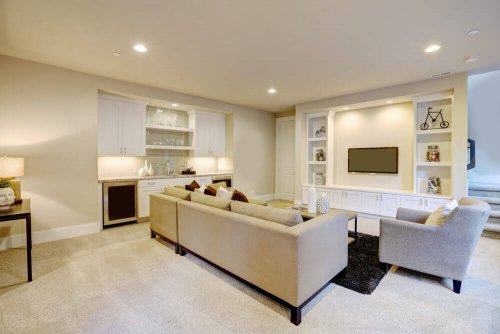DecorTips - How to Soundproof a Room

In today’s article, we’ll show you how to soundproof your bedroom from outside noise, whether noise from the street or another source. There’s nothing better than feeling safe in the knowledge that at least one room in your house is completely silent and you can enjoy some peace.
There are many different ways to soundproof a room. However, soundproofing will always be most effective if it is installed by professionals. They can turn a bedroom into a soundproof bunker that no sound can penetrate, ensuring you can relax.
Generally, our homes don’t have external insulation, so there’s not really any way to block out noise. The walls aren’t thick enough and don’t have the right insulating materials.
Advantages of a soundproof room

You might want to soundproof your bedroom, living room, study or any other room in your home. Having a soundproof room and knowing that this space is impervious to any type of noise, will instantly make you feel more relaxed.
Silence is really important. Let’s not forget that noise pollution is one of the biggest issues we face these days. We’re constantly bombarded with noise, and this can be really stressful.
So, making our rooms soundproof is actually great for our well-being. However, if you can’t afford to have your home completely insulated against sound, it is possible to have just a single room soundproofed.
Remember, your health should always come first.
How to soundproof your bedroom
Firstly, you have to identify the areas of the room that let in most sound. That way, you’ll fix the biggest issues first, and then you can move on to soundproofing your walls.
- Windows: ideally, you need double glazing, with two thick sheets of glass and a vacuum in between. You can have a PVC, wood or metal frame and you should also consider using a soundproofing sealant.
- Doors: the doors in our homes are usually hollow, or made of thin wood. So it’s a good idea to swop them for thicker doors that form a soundproof seal when closed. This will prevent sound entering your room.

Once you’ve dealt with the two most problematic areas of your room, it’s time to move on to the walls. Normally, walls are soundproofed using acoustic foam panels.
- Acoustic foam is usually cut into tiles, often in pyramid or wedge shapes. The foam is made from PVC and can be cut or shaped to your tastes. It reduces the amount of sound that enters the room and eliminates echoes.
- They come in different sizes. You can find large and small panels online. However, 11 x 11 inches is a fairly standard size, at a price of around $3-4.
- It is fairly easy to find. It’s pretty cheap on websites like Amazon, which also means the quality isn’t great. However, companies such as Thomann sell high quality acoustic panels for a higher price.
- Another solution is to install large fabric-covered fibreglass panels. This will improve the acoustics in your room, and reduce the amount of noise.
Other soundproofing solutions
If you want to improve your soundproofing further (after installing the panels we have discussed) you can use other techniques, that are more basic, but will still help to soundproof your room.

- If you have roller shutters, make sure the casing is fully closed, as they can let in noise and cold. Sealing up any little cracks or crevices will help to block out any unwanted external intrusions.
- Plants: putting plants with wide leaves on terraces just outside your window will actually help to reduce the amount of sound that enters your room.
- Putting cork or other natural fibre panels in your walls before you add acoustic foam will hugely reduce the sound that enters your room.
- If you live with a noisy family or housemates, agree on set quiet hours where no one is allowed to make much noise.
If you use these extra measures alongside the right soundproofing materials, you will have a practical and viable soundproofing solution, and get the peace and quiet that you need.
All cited sources were thoroughly reviewed by our team to ensure their quality, reliability, currency, and validity. The bibliography of this article was considered reliable and of academic or scientific accuracy.
Villamediana González, L. (2013). La anglomanía en la prensa periódica española durante la segunda mitad del siglo XVIII. Hacia 1812 Desde El Siglo Ilustrado: Actas Del V Congreso Internacional de La Sociedad Española de Estudios Del Siglo XVIII.








